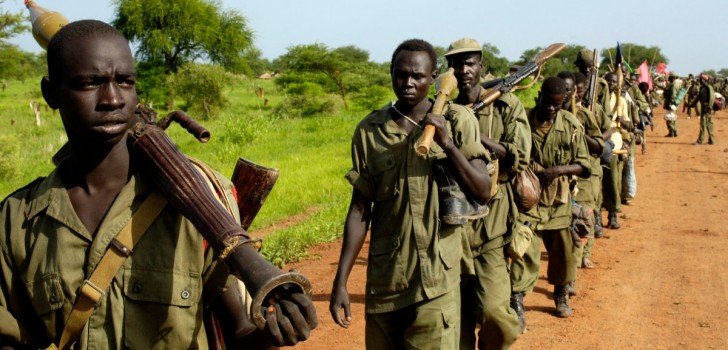After more than 20 months of fighting between the South Sudanese and rebel forces, the leaders of both parties have signed a peace deal that will hopefully end the torrent of violence in the region. The agreement calls for the establishment of a government with top officials from both groups.
South Sudan President Salva Kiir will remain president and rebel leader Riek Machar will serve as vice president and top deputy. The accord also calls for a demilitarized Juba, the capital of South Sudan. Although Kiir signed the agreement, he voiced his concerns about doing so.
Specifically, Kiir feels the peace deal was pushed upon him by world leaders exhibiting unreasonable pressure. He believes some of the terms of the deal “are not in the interest of just and lasting peace . . . We had only one of the two options, the option of an imposed peace or the option of a continued war . . . We are here talking about peace.”
Several groups welcomed the deal and also warned that there would be ramifications for those who return to arms. White House spokesman Josh Earnest stated that, “President Kiir made the right decision to sign the peace agreement today, but we should be just as clear that the United States and the international community does not recognize any reservations or addendums to that document.”
Ugandan President Yoweri Museveni echoed those sentiments stating that, “You are fighting for the sovereignty of the people of South Sudan to make their own decisions. That cannot be realized in war. When you have war it is not the people who made decisions. It is the gunmen who make decisions and these are not necessarily mandated by the people. Therefore you need to get out of this trap, remove the guns and give back power to the people so that the people can vote for what they like.”
United Nations chief, Ban Ki-moon, pointed out that, “Now is the time to ensure that this agreement translates into an end to the violence, hardship and horrific human rights violations witnessed throughout the conflict.”
The fighting in the region has resulted in the killings of thousands of people and the displacement of more than 1.6 million people. Young girls have been raped and burned alive. The U.N. has reported that since April, “the intensity and brutality of the violence” has increased drastically. Earlier this week, Doctors Without Borders reported that two of its staff members were killed last week.
Still, despite the brutal war, Kiir pointed out at the signing ceremony that the rebels had launched an attack and raid as recent as that day. “Now you can see who is for peace and who is for continued war.”
All organizations believe, however, that enforcing the agreement and making it work will take a lot of effort on everyone’s part to stop the fighting.
Stay Connected